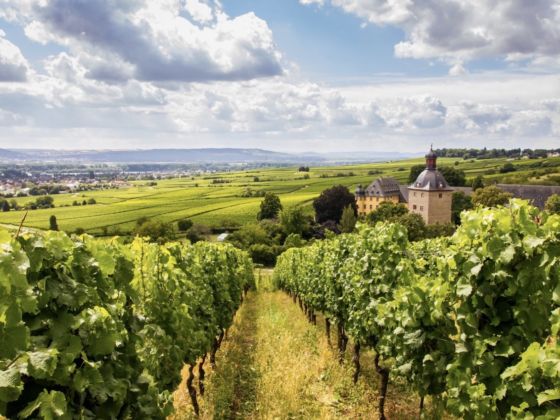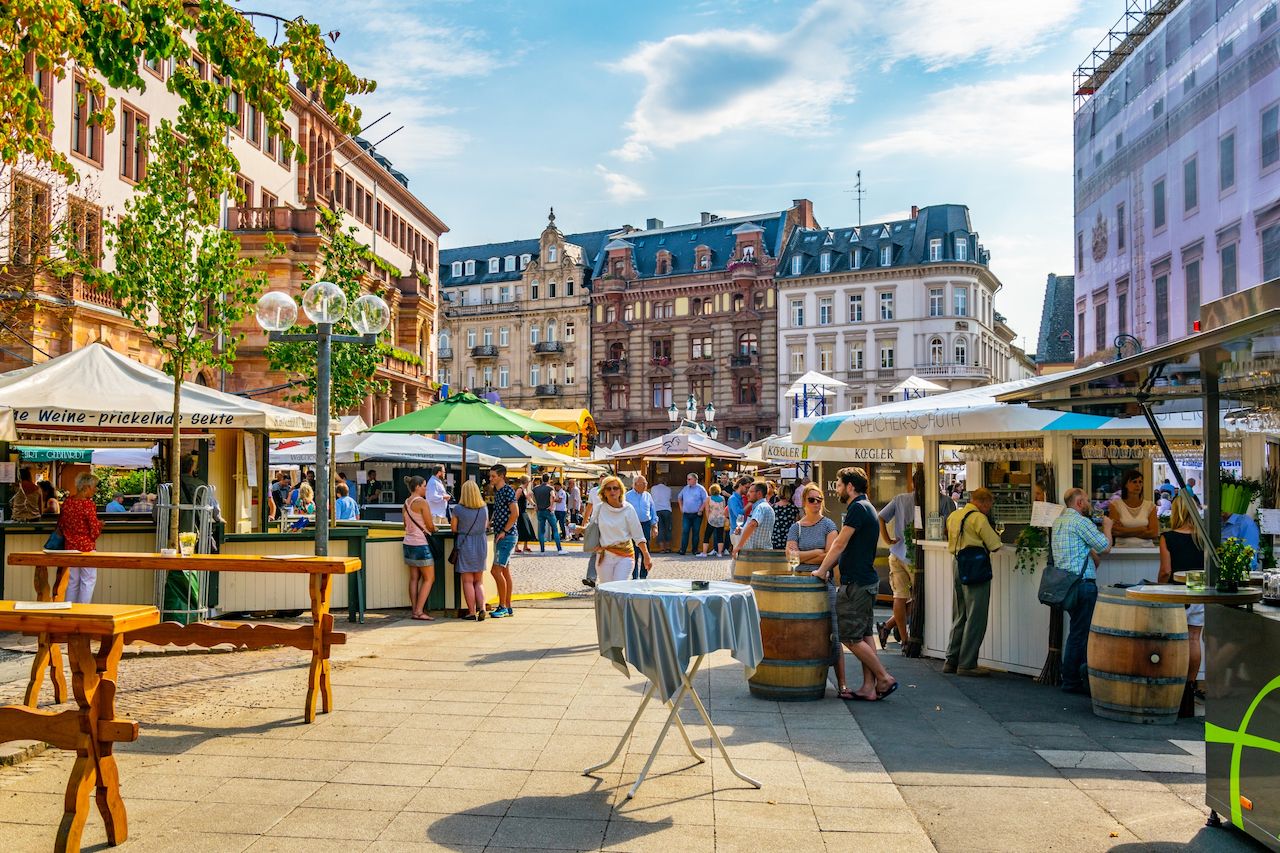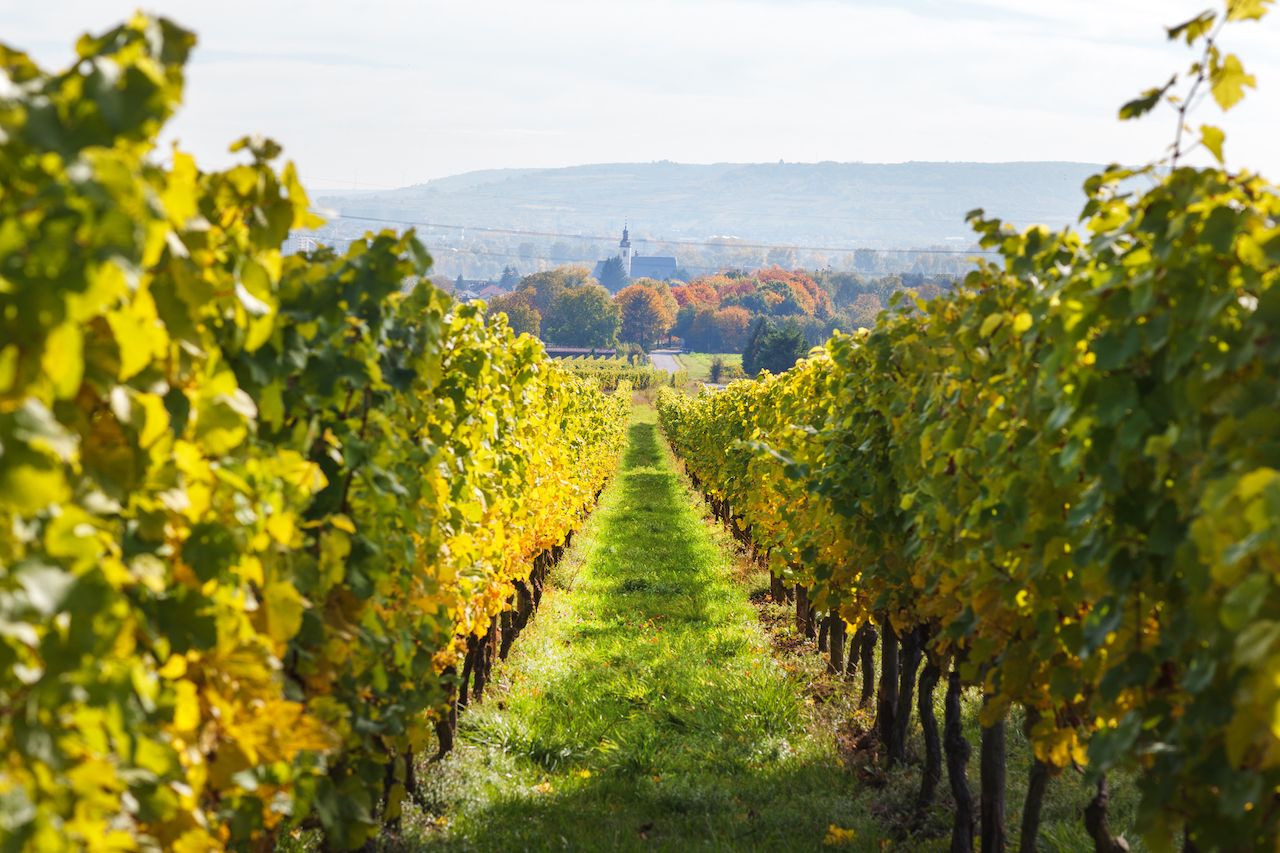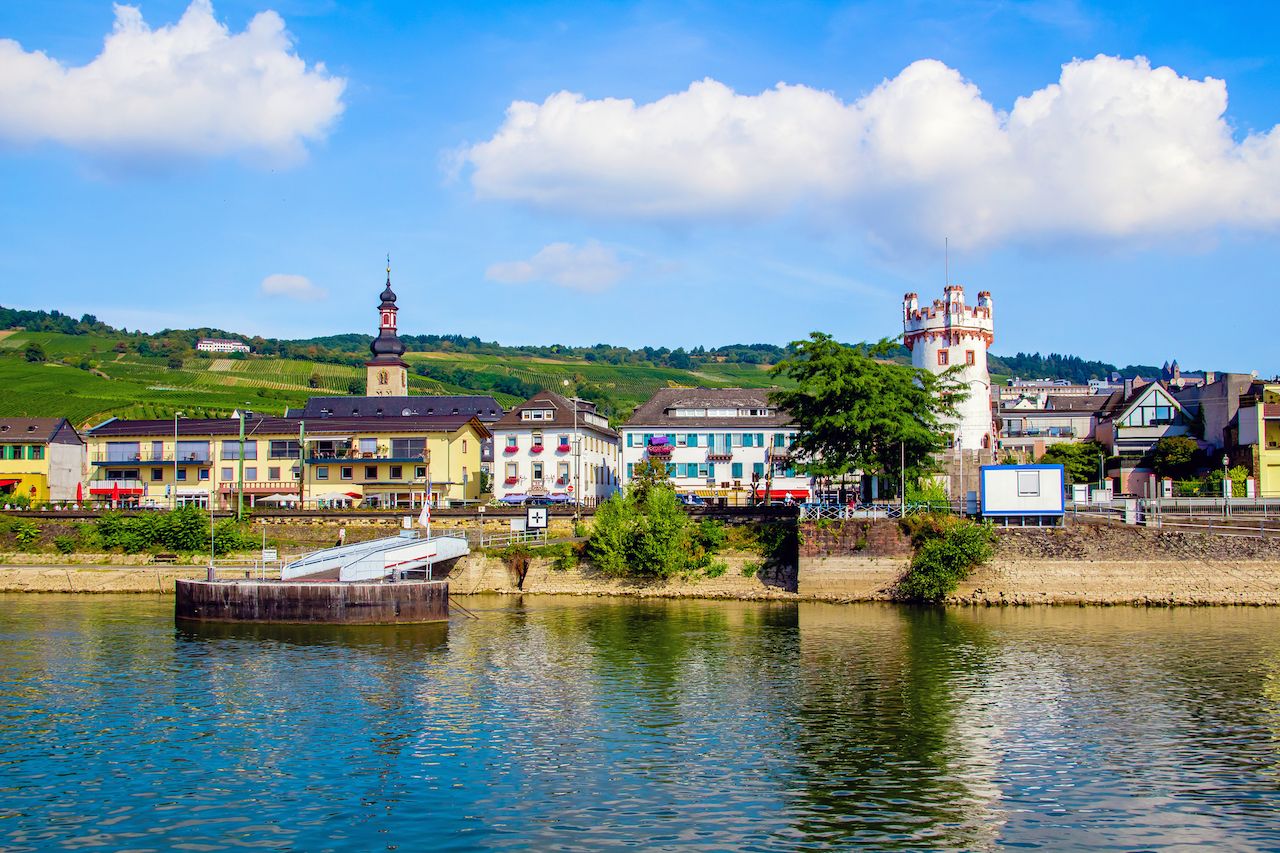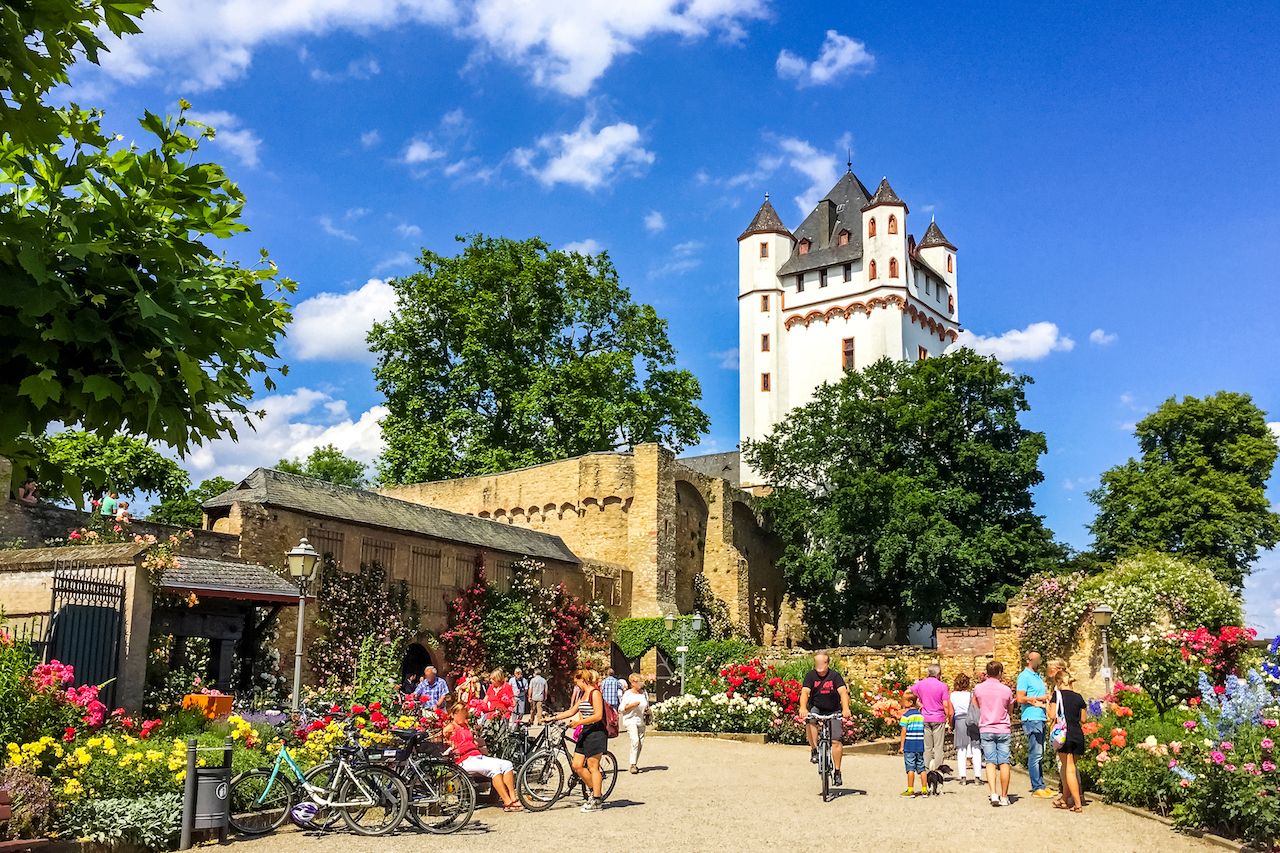When you think of wine country, the rolling hills of Napa Valley, the green fields of Tuscany, and the vineyards of Bordeaux may immediately spring to mind. Wine lovers certainly aren’t parched for options — hell, there’s even a wine region in every US state. Many of the best places for wine around the world, however, are taken over by crowds. Thankfully, that’s not so in the Rheingau, one of Germany’s top wine regions.
The Rheingau is just west of Frankfurt. It’s not among Germany’s most heavily trafficked destinations, nor is it typically the first stop on a wine connoisseur’s Euro tour, yet the Rheingau is as close to the epitome of ideal wine country as it gets. It’s the home of the Riesling grape, and wherever you go in the Rheingau, it feels like people drink Riesling like they drink water. The area is attractive even for people who aren’t wine enthusiasts, as the region is dotted with small towns along the Rhine River that have an abundance of classic German architecture, food, and culture. The next time you go to Germany, it should be for a Rheingau visit.
